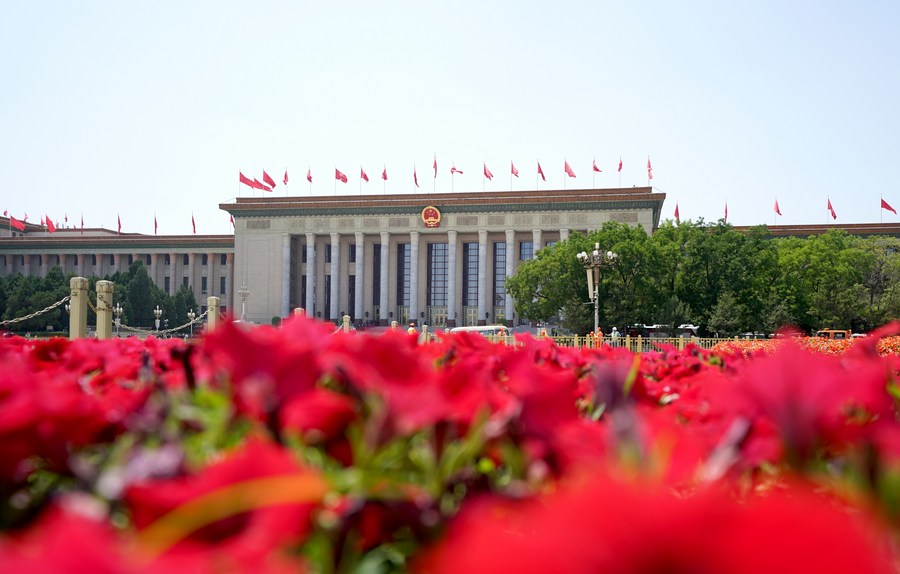Realizing democracy with socialistic characteristics


The drafts of seven laws posted on the official website of the National People's Congress-China's top legislature-to solicit public opinion have attracted varied and wide public views.
For example, between Jan 27 and Friday, the draft law on medical staff alone drew 1,783 opinions from 1,204 people, with days to go before the window closes on Feb 25.
For years now, the NPC Standing Committee has been speeding up the legislative process with more people participating in it, enabling the national legislative body to hear voices from every corner of society.
For the Civil Code, which came into effect on Jan 1, the authorities solicited public opinions 10 times and received 1.02 million suggestions and comments from 425,000 people. In the past year, the NPC has collected public opinions 42 times, with 306,000 participants contributing 1.35 million opinions, both numbers a historical record.
Making its opinion known is one of the ways by which the public participates in the legislative process. The NPC Standing Committee also replies to questions the public raise or provides feedback. For example, the law working committee often shares with the public how the NPC collects public opinions and embodies them in the draft laws.
On Dec 21, the law working committee spokesperson, Yue Zhongming, said that they had collected 8,491 opinions from 2,530 people on the draft amendment to the Criminal Law. The amendment that was passed shows that these opinions have been taken into consideration.
Public participation is a fundamental way of realizing democracy and opening the door to solicit public opinions on draft laws is the best way of encouraging public participation in the legislative process. Making timely responses to public opinions and taking them into consideration while drafting laws helps realize democracy with socialistic characteristics of China, while also ensuring good governance.

































